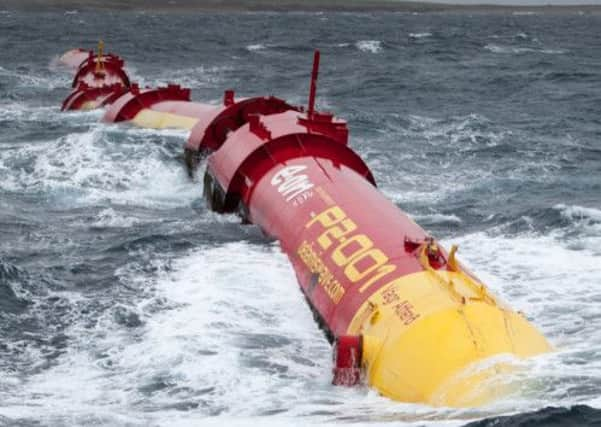Energy giants blame green energy for price hikes


The “Big Six” energy providers said profits were not to blame for rising bills and that consumers should know the true cost of investment in greener energy production and efficiency programmes, which it said will be the main driver behind a hike in bills from £1,247 today to £1,487 by the end of the decade.
Paul Massara, npower chief executive, said: “Government policy is rightly delivering the transformation we need to address the UK’s poor housing stock and encourage investment required in new infrastructure – but achieving these aspirations comes at a cost, and this is what needs to be clearly communicated to consumers.”
Advertisement
Hide AdAdvertisement
Hide AdRWE npower said support for low-carbon technologies alone would add £82 to the average energy bill by the end of the decade, up from £34 this year and £12 in 2007.
The cost of investing in low-carbon power sources accounts for less than 3 per cent of the average household bill, but this will rise to 5.5 per cent by the end of this decade, it added.
Meanwhile, energy profits have risen from £18 on the average dual-fuel bill in 2007 to £59 this year and npower predicts that profits will rise to £71 in 2020, staying constant at around 5 per cent of the bill.
Greg Barker, minister for energy and climate change, said of the npower report: “Global gas prices, not green policies, have been primarily pushing up energy bills. That is why it is vital we crack on with securing investment in a diverse energy mix that includes renewables and new nuclear, as well as gas.”
He said government policies were keeping bills lower, with a typical household saving £65 today and £166 by 2020, compared with if the UK remained reliant on fossil fuels, failed to tackle climate change and did not make homes more efficient.
A separate report also found that while Britons are prepared to pay for a shift to renewables, they do not trust the government or power companies to deliver a clean, secure and affordable energy system.
Mistrust was generated when people were told bills would go up to pay for clean power, and then saw “Big Six” profits soar, the researchers warned.
Researcher Dr Catherine Butler said: “There’s a real sense of anger about the profit-making nature of energy companies when it’s seen as a basic need, not a consumer good.”
More misery for consumers as inflation hits 14-month high
Advertisement
Hide AdAdvertisement
Hide AdINFLATION hit a 14-month high in June as rising prices at the fuel pumps and shallower discounting by fashion retailers intensified pressure on households.
Consumer prices index (CPI) inflation rose to 2.9 per cent last month, from 2.7 per cent in May, the Office for National Statistics (ONS) said.
It is the highest level since April 2012, although inflation was prevented from climbing higher by falls in the prices of fruit, vegetables, bread, air fares and package holidays.
The figure was weaker than economists’ forecasts of a 3 per cent level, and is expected to fall later in the year as commodity prices ease. While inflation has remained stubbornly above the Bank of England’s 2 per cent target since late 2009, shallower price rises will give the Bank more scope to resume economic stimulus through quantitative easing – injecting more cash into the economy.
Economists said the figure would come as a relief to new Bank Governor Mark Carney, avoiding the need for him to write a letter to Chancellor George Osborne explaining high inflation.
The ONS said clothing and footwear prices fell 1.9 per cent month on month, much less than the 4.2 per cent fall a year ago, as retailers started their summer sales with less generous discounts.
Pressure on motorists increased, with petrol and diesel prices both rising by 1.1p per litre, compared with price falls a year earlier.